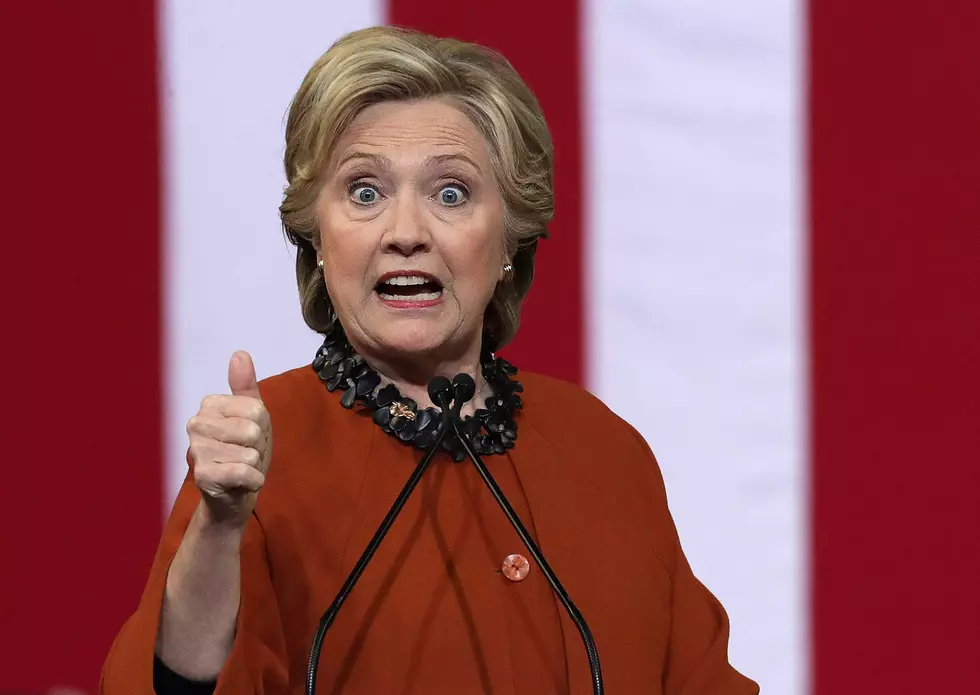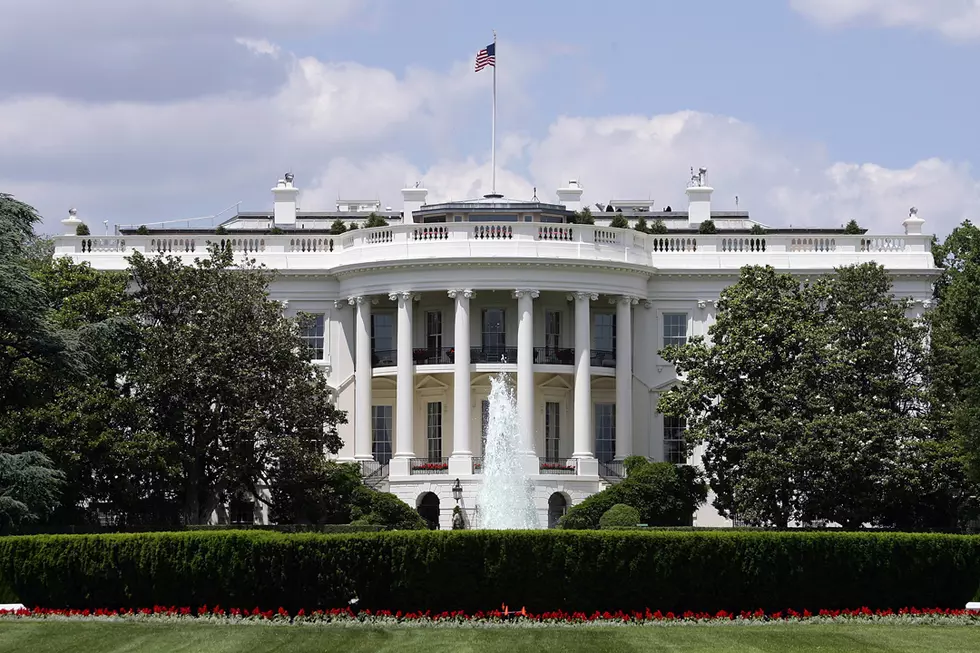Chad’s Morning Brief: The Race is on for the Texas 2014 Primaries, Hillary 2016, and Other Top Stories
Here is your Morning Brief for the morning of January 6, 2014. Give me your feedback below and tune in to The Chad Hasty Show for these and many more topics from 8:30 to 11am. Remember, you can listen online at KFYO.com or on your iPhone/Android with the radioPup App.
Texas 2014
February 18 is the first day of early voting in the 2014 primary. That date is basically right around the corner and the politicians running for office know it. And while some primary races will lack drama, there are some races where the candidates still aren't really known and the field is crowded.
The Republican primary races for Lt. Governor, Attorney General, and Comptroller are crowded with many Texans still undecided when it comes to who they will vote for. In these races the fight for name ID and in some cases the fight to out-conservative the others could be key in determining who wins.
Our goal on the show over the next month is to have each of these candidates on so you can make the best decision possible when you head to the polls. Many of these candidates will agree on some of the top issues, but there are points of disagreement.
The Republican primary for Congress in District 19 has been pretty quiet. That means one of two things. Congressman Randy Neugebauer will win easily or it's about to get crazy in this race. Donald May and Chris Winn are both challenging Neugebauer but May's campaign has been fairly quiet while Winn's campaign has been non-existent. At some point we expect to hear from Winn as to why he is running, but the timing of that announcement is anyone's guess.
Expect the race for District 83 State Representative to heat up as well in the next few weeks. This race will be one to watch locally as LISD School Board President Steve Massengale attempts to defeat the conservative Charles Perry. While Perry has been extremely effective and true to his conservative values in Austin, Massengale has the finances and support to mount a campaign.
Hillary 2016
It appears as though the support for Hillary Clinton to run in 2016 is mounting. POLITICO has a story out today about Clinton's shadow campaign.
Early last summer in her Georgian-style home near Washington’s Embassy Row, Hillary Clinton met with a handful of aides for a detailed presentation on preparing for a 2016 presidential campaign.
Three officials from the Democratic consulting firm Dewey Square Group — veteran field organizer Michael Whouley, firm founder Charlie Baker and strategist Jill Alper, whose expertise includes voter attitudes toward women candidates — delivered a dispassionate, numbers-driven assessment. They broke down filing deadlines in certain states, projected how much money Clinton would need to raise and described how field operations have become more sophisticated in the era of Barack Obama.
The meeting was organized by Minyon Moore, a longtime Clinton intimate also at Dewey Square who has informally become the potential candidate’s political eyes and ears of late. Clinton listened closely but said little and made no commitments, according to people familiar with the nearly hourlong gathering. It appears to have been the only formal 2016-related presentation Clinton has been given from anyone outside her immediate circle.
Publicly, Clinton insists she’s many months away from a decision about her political future. But a shadow campaign on her behalf has nevertheless been steadily building for the better part of a year — a quiet, intensifying, improvisational effort to lay the groundwork for another White House bid.
Some of the activity has the former first lady’s tacit approval. Some involves outside groups that are operating independently, and at times in competition with one another, to prepare a final career act for the former senator and secretary of state, whose legacy as the most powerful woman in the history of American politics is already secure.
More than two dozen people in her orbit interviewed for this article described a virtual campaign in waiting — a term that itself makes some of Clinton’s supporters bristle — consisting of longtime Clinton loyalists as well as people who worked doggedly to elect her onetime rival Obama.
There are two spheres of influence. One is made up of more than a dozen Clinton staffers, loyalists and longtime friends whose advice she values the most.
The other sphere is more complex. It includes an assortment of super PACs and outside groups, all jockeying to be part of the Clinton movement but operating beyond her immediate direction and control. Still, some of these efforts could become the foundation of an eventual campaign.
For all the genuine excitement about the prospect that Clinton, 66, could shatter the glass ceiling she famously invoked in 2008, the potential for rancor among these groups is real.
In at least one instance last year, two super PACs collided over efforts to get behind a Clinton candidacy — forcing her allies to intervene.
“There’s upside and there’s risk” to this patchwork of outside forces, said Tad Devine, an unaffiliated strategist who worked on John Kerry’s 2004 presidential campaign, when Democratic-leaning outside groups often acted at odds with the candidate’s message.
“The upside is that people are out there doing valuable and important work for you,” he said. But “in a campaign, when people are acting on your behalf but they’re not driven by an agreed-upon strategy, then that’s the risk.”
The outsiders: friends with headaches
Hillary Clinton was a few months removed from the State Department when one of her top aides, Huma Abedin, received an alarmed phone call about trouble brewing between two groups looking to help her politically.
“Ready for Hillary,” the super PAC that was initially billed as a grass-roots effort to channel early energy for Clinton to run, had become a source of frustration, and it was reaching a boiling point. In addition to a moniker that irked some Clinton allies — they thought it had an air of inevitability that plagued her in the past — the group was making an aggressive play for activists and donors to back their effort.
At the same time, Priorities USA, the main super PAC behind Obama in 2012, was in discussions to reinvent itself as a pro-Hillary Clinton endeavor. That would mean appealing to some of those same supporters. The two groups also had wildly different views of how active to be while Clinton was assessing whether to run.
The Priorities official warned Abedin that the situation could become problematic for Clinton if it wasn’t resolved. The official sought guidance from someone who had the would-be candidate’s ear.
The efforts of pro-Clinton outside groups over the past half-year, and the Clinton allies trying to corral them, reflect a much-changed political landscape since Clinton’s last run. Back then, super PACs didn’t exist. Potential candidates who needed campaign prep work done had to set up an exploratory committee or PAC under their own direct control.
Now super PACs are a must-have political accessory for candidates of all stripes.
The groups can raise and spend unlimited sums in support of a candidate and perform key tasks the person isn’t ready to do. In Clinton’s case, Priorities will probably line up pledges from big donors. Ready for Hillary is building email lists. And Correct the Record — launched last year by Clinton-critic-turned-defender David Brock as an offshoot of the super PAC American Bridge — hits back when Clinton is attacked in the media and tries to define potential rivals like Chris Christie.
Other Top Stories:
These and many more topics coming up on today’s edition of The Chad Hasty Show. Tune in mornings 8:30-11am on News/Talk 790 KFYO, streaming online at kfyo.com, and now on your iPhone and Android device with the radioPup App. All guest interviews can be heard online in our podcast section after the show at kfyo.com.
More From News/Talk 95.1 & 790 KFYO






![Chad’s Morning Brief: Is Hillary Clinton Going To Run For President Again? [WATCH]](http://townsquare.media/site/192/files/2017/09/GettyImages-846077654.jpg?w=980&q=75)


